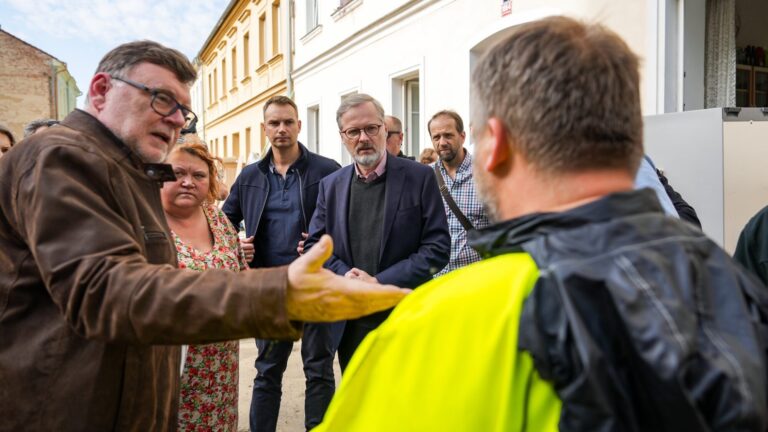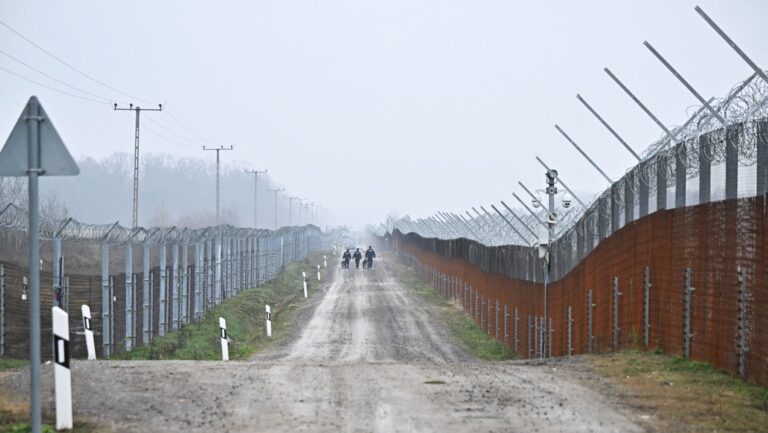European Union leaders wrapped up their Thursday negotiations regarding migration and border control on Friday morning, February 10th, agreeing to allocate significant funds to help member states reinforce the bloc’s external borders, according to the resulting statement.
The statement calls for the European Commission to “immediately mobilise substantial EU funds and means” to assist countries on the EU’s external frontiers bolster their “border protection capabilities and infrastructure,” specifically referencing “surveillance, including aerial surveillance, and equipment.”
The agreement marks a remarkable shift from just a few years ago when the idea of stopping mass migration with border fences was generally frowned upon in Brussels; to jointly fund them was unimaginable.
Even though adequate border control on the peripheries of Schengen was a prerequisite for joining, Hungary, for instance, faced much criticism from EU institutions after building a barbed wire fence along its southern border with Serbia in 2015.
Much has changed since then, however. Despite the frequent criticism, the Hungarian fence had become an example for a number of EU member states in the following years—including Greece, Bulgaria, Austria, Lithuania, and Poland—who built over 1,200 kilometres of fencing between them.
Friday’s decision signals that the EU as a whole has changed its mind too. The countries that are on the side of stricter border control no longer constitute a minority but are now able to get their agenda approved in the Council. Increased border protection capabilities are not only in the interests of those who share the external borders, but also of those EU countries further to the west, since once inside Schengen, most migrants can easily move about wherever they please.
According to sources close to Politico, EU leaders had a hard time finding common ground. Some wanted Brussels to help pay for new fences along the external borders; others urged the council to speed up the return of rejected asylum seekers. A few, such as German Chancellor Olaf Scholz, initially argued against erecting more physical barriers.
Does the EU “want to turn itself into a fortress?” Chancellor Scholz asked, pointing out that the (incomplete) wall along the U.S.-Mexican border did not reduce the number of illegal entrants significantly either. The Hungarian example, however, shows that a simple wire fence—coupled with adequate border control force and enough surveillance instruments—can, in fact, eliminate virtually all illegal crossings.
New HUNGARIAN Border Fence Called "The Miracle Fence!" Illegal Crossings Now Negligible! Almost 100% Drop In Illegal Immigration |https://t.co/IDsJqGjYVo pic.twitter.com/8k2e8vm9nV
— AmeriKen 🇺🇸🇺🇸 (@kenameri1) January 5, 2018
Ultimately, the pro-wall side—led by Austrian Chancellor Karl Nehammer—emerged victorious in the negotiations. Austria has recently taken the lead among the countries pushing for stricter border controls, following a series of tri-party summits involving Hungarian and Serbian leaders to strengthen cooperation on stopping mass immigration.
“The EU Commission has now agreed to provide substantial support,” Chancellor Nehammer said, explaining that countries like Bulgaria can now use EU funds to pay for personnel and vehicles, then use their own funds to pay for new fences. Even if the final statement does not specifically include the funding of barriers (as Commissioners still regard the fence to be a red line), Nehammer believes that the results mean that the EU is “de facto paying for the border fences.”
In the end, even those initially opposing the measures, including Germany’s Scholz, agreed to increased support for border control. But they, along with Commission President Ursula von der Leyen, only agreed to spend EU money for infrastructure such as cameras, watch towers, and vehicles.
“Borders must be managed,” the EC president said at the press conference after negotiations ended. “We will act to strengthen our external borders.”





